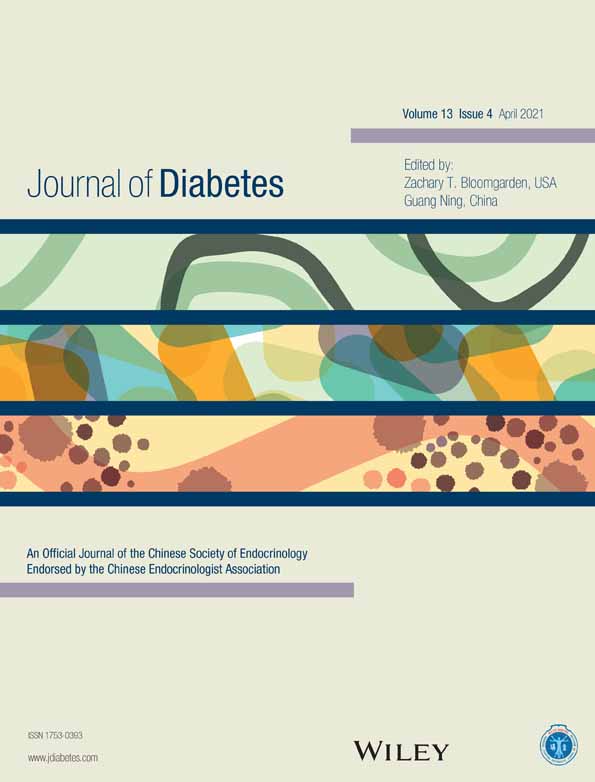Determinants of mental health outcomes among people with and without diabetes during the COVID-19 outbreak in the Arab Gulf Region
新型冠状病毒肺炎暴发期间阿拉伯海湾地区糖尿病患者和非糖尿病患者心理健康结果的决定因素
Abstract
enAims
To determine the prevalence and factors associated with depression and anxiety among people with and without diabetes during the coronavirus disease 2019 (COVID-19) outbreak.
Methods
A cross-sectional questionnaire-based study collecting demographic and mental health data from 2166 participants living in the Arab Gulf region (568 with diabetes, 1598 without diabetes). Depression and anxiety were assessed using the 9-item Patient Health Questionnaire and the 7-item Generalized Anxiety Disorder scale, respectively.
Results
The prevalence of depression and anxiety symptoms were 61% and 45%, in people with diabetes (PWD) and 62% and 44%, respectively, in people without diabetes. PWD who have had their diabetes visit canceled by the clinic were more likely to report depression and anxiety symptoms than those without diabetes (odds ratio [95% confidence interval]: 1.37 [1.02, 1.84] and 1.37 [1.04, 1.80], for depression and anxiety; respectively). PWD who had no method of telecommunication with their health care providers (HCP) during the pandemic, PWD with A1C of ≥ 10%, women, employees (particularly HCPs), students, unmarried individuals, and those with lower income were more likely to report depression and/or anxiety symptoms (all P < 0.01). Fear of acquiring the coronavirus infection; running out of diabetes medications; or requiring hospitalization for hypoglycemia, hyperglycemia, or diabetic ketoacidosis; and lack of telecommunication with HCPs were all associated with significantly higher odds of having depression and anxiety symptoms among PWD.
Conclusions
The remarkably high prevalence of depression and anxiety symptoms during the COVID-19 pandemic, particularly among subgroups of PWD, calls for urgent public health policies to address mental health during the pandemic and reestablish health care access for PWD.
摘要
zh目的
明确2019年新型冠状病毒肺炎暴发期间糖尿病患者和非糖尿病者抑郁和焦虑的患病率及其相关因素。
方法
这是一项基于横断面的问卷研究, 收集了居住在阿拉伯海湾地区的2166名受试者(568名糖尿病患者, 1598名非糖尿病者)的人口统计学和心理健康数据。抑郁和焦虑分别用9个条目的健康问卷和7个条目的广泛性焦虑量表进行评估。
结果
糖尿病组抑郁和焦虑症状的发生率分别为61%和45%, 非糖尿病组分别为62%和44%。被门诊取消就诊的糖尿病患者比无糖尿病的患者更容易出现抑郁和焦虑症状(抑郁和焦虑的优势比[95%可信区间]分别为1.37[1.02, 1.84]和1.37[1.04, 1.80])。糖尿病患者中无法联系医疗服务提供者(HCP)的残疾人, A1C≥10%的残疾人, 女性, 从业人员(尤其是HCP), 学生, 未婚人士和低收入人群更易出现抑郁和/或焦虑症状(P<0.0 1)。糖尿病患者中担心感染病毒; 糖尿病药物用完; 或因低血糖, 高血糖或糖尿病酮症酸中毒而需要住院; 缺乏与HCP的通讯, 这些都与出现抑郁和焦虑症状的几率显著增加有关。
结论
新型冠状病毒肺炎大流行期间抑郁和焦虑症状的患病率非常高, 特别是在糖尿病患者亚群中, 迫切需要公共卫生政策来解决大流行期间的心理健康问题, 并重新建立糖尿病患者的卫生保健服务。




